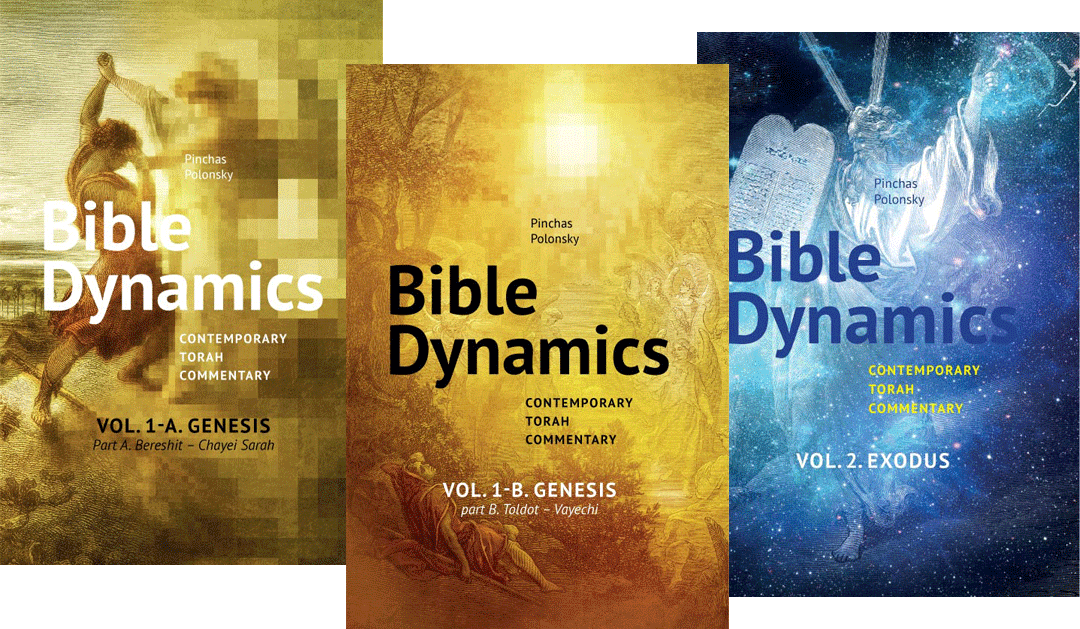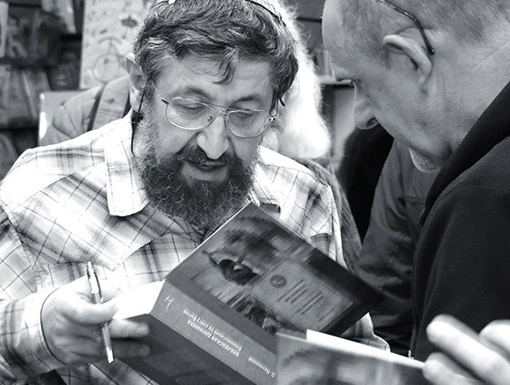The Bible Dynamics: Why they are important
The Bible Dynamics commentary is a unique interpretation of the Torah, with an emphasis on demonstrating how personalities and ideas constantly evolve.
Biblical personalities are traditionally perceived as larger-than-life, heroic figures, who surmount incredible obstacles to advance the world. And yet, little emphasis is placed on their own personal development. But according to the centuries-old Kabbalistic tradition revealed in our times by Rabbi Y. L. Ashkenazi (Manitou), the heroes of the Torah are evolving personalities who undergo profound change over the course of their lives, while acquiring new ideas and personal qualities through their ongoing dialogue with God.
Some new ideas we present in this volumes are:
- Abel, who is murdered by Cain, is not simply the victim of his brother’s enmity. Rather, he bears joint responsibility with Cain for the conflict that has arisen between them.
- We highlight the ongoing development of Noah’s personality in the course of the flood. Why did God regret having created man? How did God’s relationship to mankind change during the flood? What is the significance of the fact that the flood lasted an entire year, given that the evildoers it was brought to annihilate drowned almost immediately. How did human nature change during the flood?
- The tower of Babel: The dynamics of mutual understanding among the nations; the two types of language, and the development of diverse human languages, which occurred even before the flood. Divine revelation as a source of conflict across different cultures.
- The dynamics of Abraham’s development and his worldview. The discrepancy between God’s plan and Abraham’s plan of “chosenness.” Why Abraham was not alone sufficient as the progenitor of the new nation; the conflict over the destruction of Sodom; Abraham’s difficulty in finding a meeting of the minds with his son Isaac; Abraham’s aversion to accepting a position of national leadership; the conflict of Hebron and Beer-sheba, and Sarah’s role and influence in resolving that question.
- Isaac’s life as a process of “faceting” the attribute of Gevurah (power, might). The role of Isaac’s laughter in the process of giving the blessing to his “mysterious” son.
- The evolution of Jacob’s personality: His integration of elements of his brother’s “Esau-ness” on his path to becoming Israel.
- The role of Joseph’s and Judah’s development in the emergence of Mashiach ben Yosef and Mashiach ben David. Joseph’s plan for correcting his brothers, and why he had to interrupt that plan without seeing it through to completion.
- Moses’s dual identity as both Jew and Egyptian, and his internal conflict in reconciling those two personalities.
- Why Moses’s exile to Midian was essential for his personal development and growth.
- The evolution of Moses’s personality in the course of the Exodus, from his refusal to be a leader to the people, and his unwillingness to circumcise his son, to his insistence after the incident of the golden calf that God must not replace Israel with another nation.
- Two Temples under one roof: “Moses’s Temple” and “Aaron’s Temple,” and the conceptual differences between them. A new approach to the relationship between Judaism and Christianity, and the universal mission of the Jewish people with respect to mankind.
- The two accounts of the giving of the Torah at Sinai, and an itemized comparison of their similarities and differences.

